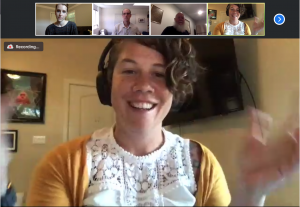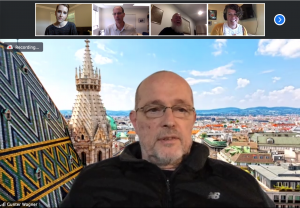This conversation was led by Amy Boddy, Assistant Professor of Anthropology at the University of California, Santa Barbara. Cancer is a disease that affects most animals, however we have a limited understanding on comparative cancer rates. Here we report on 42 years of well curated necropsy data and estimate cancer rates across mammals. We find a great deal of variation in cancer vulnerabilities and predict a life history framework can help explain species specific cancer risk. This work highlights how a comparative approach to cancer can provide new insights into how species across the tree of life have dealt with cancer as a selective pressure.
After Dr. Boddy discussed her work, we heard counterpoints from Gunter Wagner, Alison Richard Professor of Ecology and Evolutionary Biology at Yale, and David Haig, George Putnam Professor of Organismic and Evolutionary Biology at Harvard.



Resources discussed:
- Boddy et al. 2020, “Lifetime cancer prevalence and life history traits in mammals”
- Wagner, Kshitiz, and Levchenko 2020, “Comments on Boddy et al., 2020: Available data suggests positive relationship between placental invasion and malignancy“
- Haig 2020, “Comment on the exchange between Boddy et al. and Wagner et al.: malignancy, placentation, and litter size“
- Boddy et al. 2020, “Does placental invasiveness lead to higher rates of malignant transformation in mammals? Response to: ‘Available data suggests positive relationship between placental invasion and malignancy’“

Comments are closed, but trackbacks and pingbacks are open.